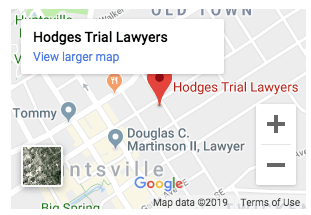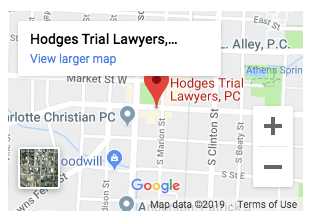Activities of daily living – aka ADLs – these are the routine procedures you go through most days of your lives. It includes household chores such as sweeping, vacuuming, preparing food, driving a car, and your hobbies and interests. SSA wants to know how your medical conditions affect your ability to perform these ADLs because it can be useful to show what kind of jobs you would no longer be able to do.
Administrative law judge – The ALJ is the one who ultimately will decide if you are unable to perform gainful employment if your case is appealed. This individual listens to testimony, reviews the medical records and other documents and makes determinations regarding what the evidence shows.
Alleged onset date – This is the date that you claim your condition became so bad that you were no longer able to sustain gainful employment. Sometimes this date is the result of a traumatic life changing event and very easy to identify. Other times when a condition is simply worsening over time, it is very difficult to define the exact date.
Appeal deadline – This is the deadline to file your appeal in the event your initial application is denied. Generally the appeal deadline is 60 days from the original denial of the disability application.
Appeals – An appeal is necessary when you have been denied disability and you believe you are in fact disabled. An appeal will allow you to have a hearing in front of an Administrative Law Judge who will further review the evidence and enter a determination.
Appeals council – The Appeals Council oversees the hearings and appeals process to promote consistency amongst hearing decisions. It also ensures that the Social Security Board’s records were adequate for judicial review.
Application – The application is what you file when you want to request Social Security disability benefits. It is a lengthy list of questions, but most of the questions are fairly straightforward.
Award letter – If you claim is ultimately approved, you will receive an awards letter. This letter will generally answer most benefit payment questions that disability claimants inevitably have. (Amount to be received, date of payment, past due benefits, date of check for past due benefits)
Back pay – Back pay is the money awarded for the time that you were not receiving disability benefits because the Disability Determination Services and/or Appeals Council was processing your claim. It is usually paid in one lump sum or three incremental payments in the first year you receive disability benefits.
Cessation – As the name implies, a cessation means that the Social Security office is going to cut off your benefits because it believes you are no longer qualified to receive Social Security Disability benefits.
Closed period – A closed period exists when a claimant for Social Security disability benefits or SSI is found to be ineligible for ongoing benefits, but yet eligible to receive benefits for a period of time in the past.
COLA – COLA stands for Cost of Living Adjustment. The Social Security office will adjust your benefits based on the changes in the cost of living.
Credits – The Social Security Administration (SSA) determines if you have worked enough to qualify for SSD by converting your earnings into work credits. The dollar amount it takes to earn one work credit is calculated annually. In the year 2013, you must earn $1,160 to get one Social Security work credit, or $4,640 to get the maximum four credits for the year. It doesn’t matter in which quarter you did the work.
Disability Terminology
October 31, 2013


